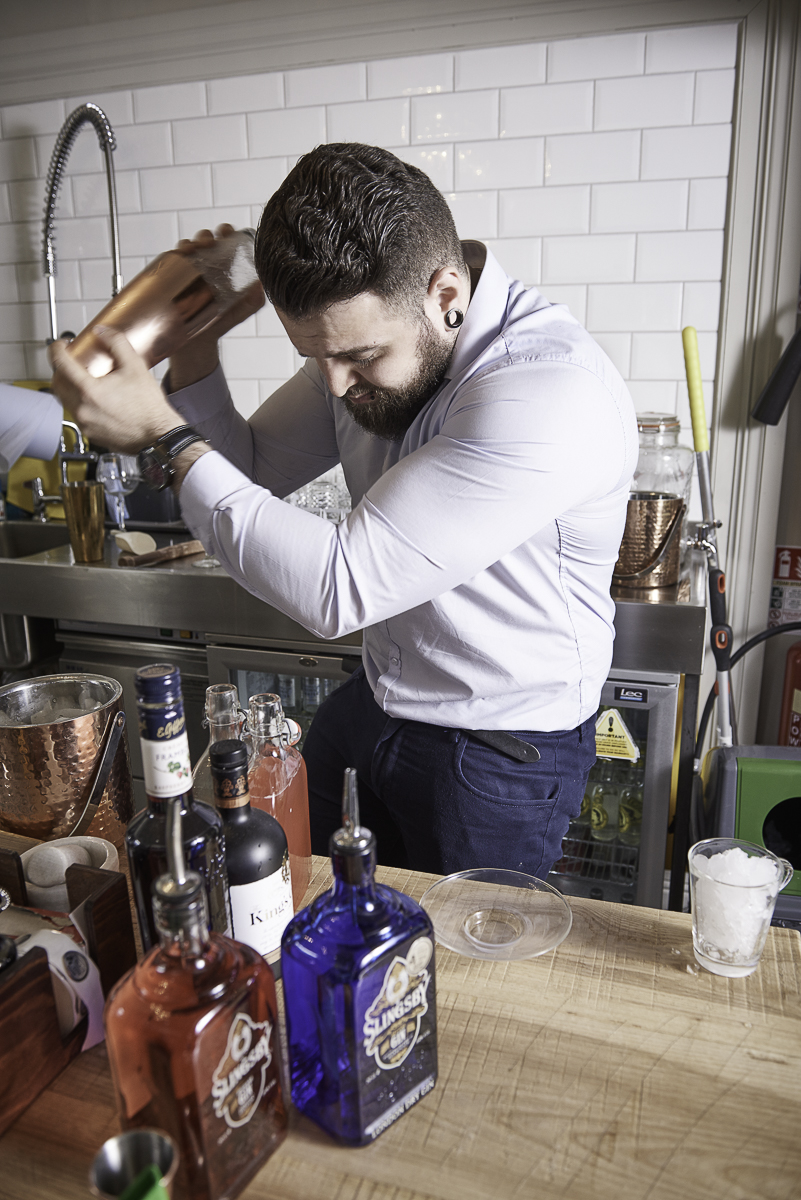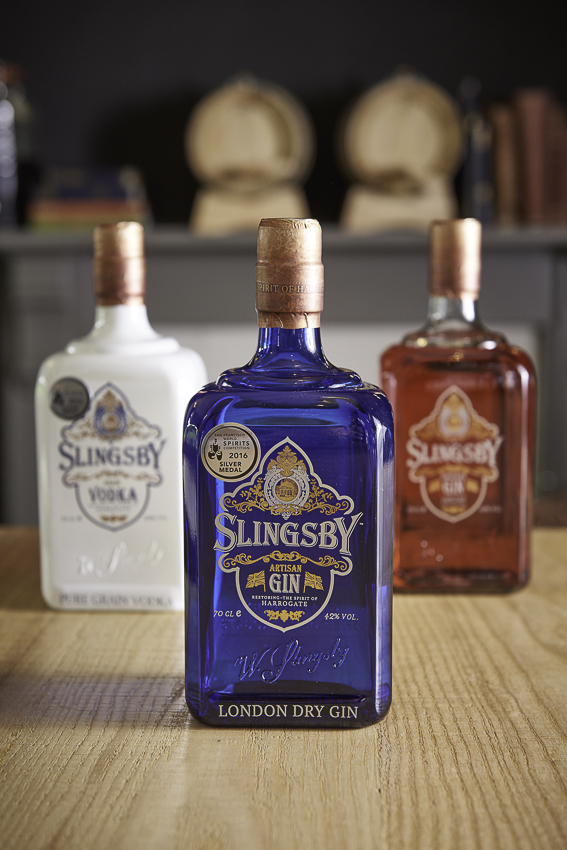Become a gin genius at Bettys

It’s clear, colourless and all too easily paired off with tonic. But for such an unassuming spirit, gin has a surprisingly murky history.
“The story of gin is fascinating,” says Amy McLeod of Harrogate gin-makers Slingsby. “It begins in the Dutch republic during the early 1600s, where juniper flavoured spirit was used as a medicine.”
By the first half of the 17th century, British soldiers fighting in the Thirty Years War had discovered the power of genever, as it was called back then, to lend them a spot of ‘Dutch courage’ before battle. “After the war,” Amy continues, “British troops brought their favourite tipple back to England and when King William of Orange – a Dutchman himself – came to the English throne, gin became very popular.”
British soldiers fighting in the Thirty Years War had discovered the power of ‘genever’ to lend them a spot of ‘Dutch courage’ before battle.
Although gin can contain any number of herbal extracts, or botanicals, juniper is the vital ingredient. “If you haven’t got juniper berries in there then it isn’t gin” says Amy. Yet that didn’t stop some unscrupulous distillers trying to skimp on the recipe at the height of the 18th century’s ‘gin craze’, when Londoners consumed an estimated 90 bottles each per year: “Some smaller distillers tried to imitate juniper’s essence using a combination of lesser-quality additives and flavourings, including oil of turpentine, oil of almonds, and even sulphuric acid.”
Londoners’ love affair with gin led to a raft of social problems, as immortalised in William Hogarth’s engraving ‘Gin Lane’, where residents’ lives of squalor are contrasted with the hale and hearty folk in the companion picture, ‘Beer Street’.

With such dubious practices now firmly in the past, gin’s current renaissance is thanks in part to distillers such as Slingsby who are dedicated to crafting a better quality spirit. Launched last autumn, the brand takes its name from William Slingsby, whose discovery in 1571 of the Tewit Well kindled the growth of Harrogate as a spa town.
Slingsby gin contains a bespoke mix of Madagascan juniper berries and 24 locally sourced botanicals, including thyme, milk thistle, nettle and sweet cicely, 12 of which are grown and hand-picked from Rudding Park Hotels kitchen garden. The recipe also calls for water drawn from Harrogate’s world famous aquifier, pure single grain spirit – and our sister company Taylors’ own green and jasmine tea.
Learn how to create an imaginative gin-inspired menu for when you next entertain friends on our NEW Let the Entertainment Be~Gin course at Bettys Cookery School. On 8th and 28th April - a perfect gift for Mother's Day.


